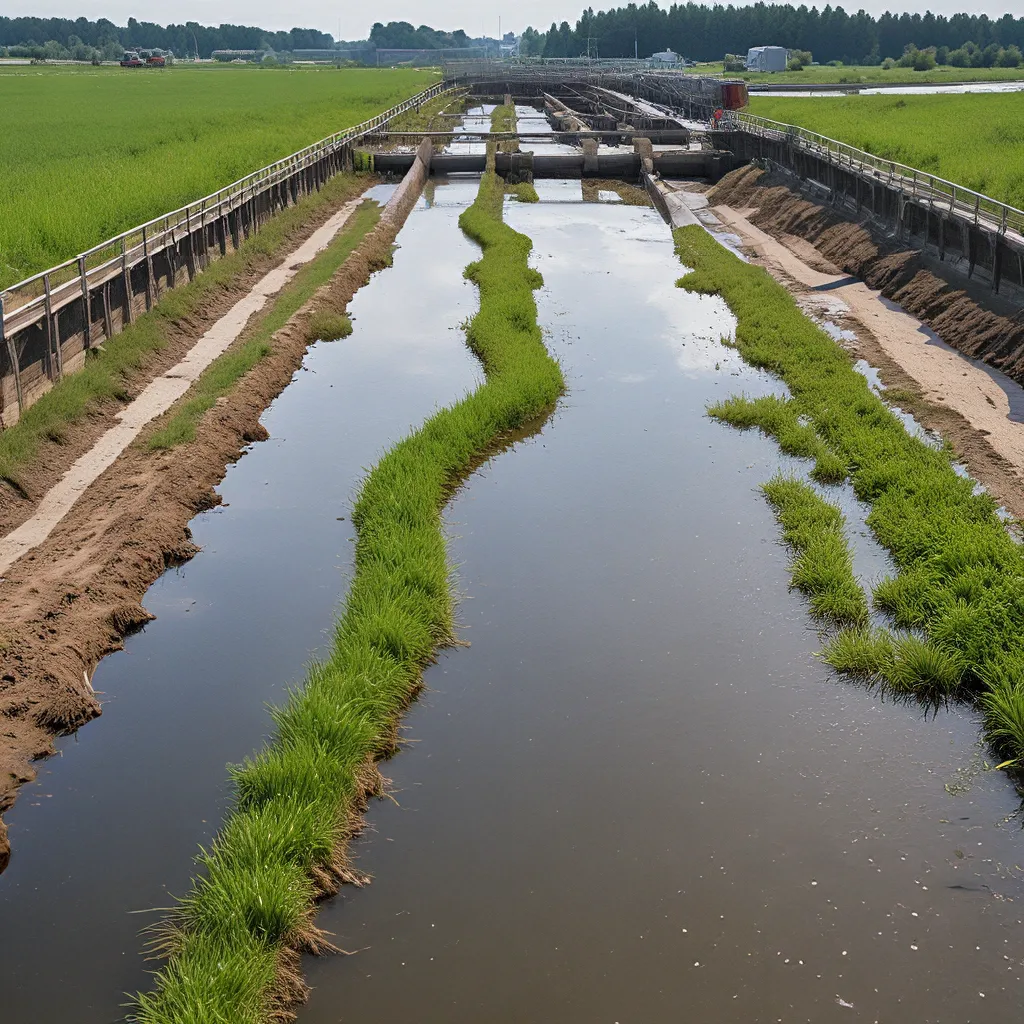
As an environmental enthusiast, I’ve always been fascinated by the concept of the bioeconomy – the idea of harnessing the power of biology and renewable resources to create sustainable products and energy. And when it comes to the bioeconomy, one area that’s been capturing my attention lately is the incredible potential of wastewater.
You see, wastewater isn’t just something we need to get rid of; it’s actually a treasure trove of untapped resources. From bioproducts to bioenergy, this often-overlooked waste stream is quietly revolutionizing the way we think about sustainability. And let me tell you, the more I dive into this topic, the more excited I get about the possibilities.
Uncovering the Treasure Trove of Wastewater
Think about it – every day, our homes, businesses, and municipalities generate millions of gallons of wastewater. And within that wastewater, you’ve got all sorts of valuable materials just waiting to be extracted and put to good use. We’re talking about everything from organic matter that can be converted into biofuels to nutrients that can be recycled back into the agricultural system.
It’s like finding a goldmine in your own backyard, just waiting to be explored. And the best part is, these wastewater resources are readily available and unlikely to diminish in the near future. That means we can start tapping into this bounty right now, without having to worry about land-use changes or other major disruptions.
Hydrothermal Processing: A Game-Changer for Wet Waste
One of the most exciting developments in the world of wastewater-to-bioeconomy is the rise of hydrothermal processing. This innovative technology has the potential to revolutionize the way we handle those wet waste streams that have traditionally been a real challenge to deal with.
You see, traditional anaerobic digestion (AD) – the process of breaking down organic matter in the absence of oxygen – only reduces waste volumes by around 50%. And the biogas that’s produced requires extensive cleanup before it can be used as a vehicle fuel or injected into natural gas pipelines. Not to mention, AD is also a capital-intensive process, making it uneconomical at smaller scales.
But hydrothermal processing? It’s a game-changer. This technology can handle diverse blends of wet waste feedstocks, offering the potential for widespread deployment. And the best part is, it doesn’t just produce biogas – it can also generate valuable diesel blendstocks and other high-value bioproducts.
Unlocking the Potential of Alternative Reactor Designs
But wait, there’s more! The folks at the Department of Energy’s Bioenergy Technologies Office (BETO) have been exploring some really exciting alternatives to traditional AD as well. And let me tell you, these new reactor designs have the potential to shake things up in a big way.
For example, anaerobic membrane bioreactors have the ability to reduce capital costs dramatically while still producing that precious biogas. And guess what? They can even boost the methane content, making the biogas even more valuable as a fuel or feedstock.
And that’s not all – BETO is also looking into ways to leverage both the carbon dioxide and the methane from biogas to produce even higher-value fuels and products. It’s like taking the waste stream and turning it into a veritable treasure trove of renewable resources.
Tackling Waste-to-Energy Challenges, One Community at a Time
Of course, as with any emerging technology, there are still some challenges to overcome when it comes to waste-to-energy solutions. But that’s where BETO’s Waste-to-Energy Technical Assistance for State, Local, and Tribal Governments program comes in.
This initiative pairs national lab experts with state, local, and tribal governments, providing them with the technical assistance they need to advance waste-to-energy technologies and address any knowledge gaps or specific challenges they might be facing.
Whether it’s quantifying local organic waste resources, evaluating energy and resource recovery options, or assessing equity considerations, BETO’s team of experts is there to help communities make the most of their waste streams and unlock the full potential of the bioeconomy.
Exploring the Future of Waste-to-Energy with SBIR/STTR Funding
And the excitement doesn’t stop there! BETO is also exploring ways to support small businesses with early-stage waste-to-energy technologies through its Small Business Innovation Research (SBIR) and Small Business Technology Transfer (STTR) programs.
These initiatives are designed to help cultivate a strong national economy by investing in innovative solutions that can transform our waste streams into valuable resources. And with the readily available nature of waste feedstocks and the early-stage nature of many waste-to-energy technologies, it’s clear that this is an area ripe for exploration.
So, who knows what kind of game-changing ideas might come out of these SBIR/STTR programs? It’s an exciting frontier, and I can’t wait to see what the future holds.
Embracing the Bioeconomy, One Wastewater Stream at a Time
As I’ve delved deeper into this topic, I’ve come to realize just how much potential there is in the world of wastewater and the bioeconomy. From bioproducts to bioenergy, this often-overlooked resource is poised to play a critical role in our journey towards a more sustainable future.
And with the innovative technologies and collaborative efforts happening at the federal, state, and local levels, I’m confident that we’re just scratching the surface of what’s possible. Who knows, maybe one day we’ll look back and marvel at how we ever managed to let all of that valuable waste go to
waste.
So, if you’re like me and you’re excited about the prospect of turning our wastewater into a treasure trove of renewable resources, I encourage you to keep an eye on the developments in this space. Because the future of the bioeconomy is being written one wastewater stream at a time, and it’s going to be one heck of a ride.
Alpha Wastewater is at the forefront of this exciting transformation, leveraging the latest technologies and innovation to help communities unlock the full potential of their wastewater resources. Whether you’re a municipality, a business, or just a concerned citizen, they’re here to guide you on the journey towards a more sustainable future.